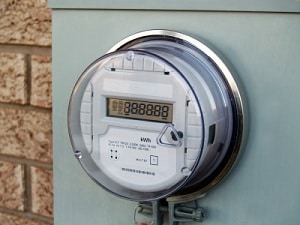ComEd Study: Smart Meters Will Save Electric Customers $2.8 Billion

Commonwealth Edison Company (ComEd), one of the nation’s largest public utilities, said a recent study it commissioned found that the approximately 3.8 million electric customers it serves in northern Illinois could save $2.8 billion over 20 years if the utility installed smart meters throughout its service territory.
The study, which ended May 31, was performed by third-party consultant Black & Veatch and evaluated a one-year smart meter pilot program approved by the Illinois Commerce Commission (ICC), the agency that regulates public utilities in the state. ComEd, which paid for the study under the terms of the pilot program, used Black & Veatch to analyze a smart meter test rollout to 121,000 electric customers on Chicago’s West Side and near-West suburbs.
According to the consultancy’s study, the $2.8 billion that customers would save off electric bills over the smart meters’ 20-year lifespan would come from several key operational improvements:
- The virtual elimination of manual meter reading (ComEd noted that employees affected by this change would be transitioned to other areas of the company)
- More accurate electric bills
- Fewer service visits and fewer calls to the electric utility’s Customer Call Center
- An enhanced ability to efficiently disconnect and reconnect electric service, which minimizes collection costs
- The improved detection of electricity theft
- Faster, more efficient sign-up of new customers
ComEd said that the estimate of $2.8 billon in savings would come on top of any savings that electric customers secured for themselves by using the real-time electricity consumption information provided by smart meters to change the way they used electricity in their homes and businesses.
Funding for Smart Meter Plan Debated Over Questions of Cost, Oversight
The public utility said that the amount of money that electric customers could save by having a modern grid equipped with smart meters would more than offset the potential cost that electric customers would have to pay for the installation of millions of smart meters.
However, the cost of ComEd’s plan to upgrade the grid in its service territory with smart meters has been a point of heated debate and has prevented the utility from moving forward with its plans.
The smart meter pilot program itself suffered a blow when an Illinois Appellate Court in October 2010 put an end to the utility’s method of recovering costs for the installation of the 121,000 devices. The court ruled that the ICC had made a mistake when it allowed ComEd to charge all of its northern Illinois customers for the pilot program instead of just those who actually received smart meters. ComEd has appealed the ruling.
In May, the Energy Infrastructure Modernization Act (SB 1652), which would allow ComEd to recoup its multi-billion investment in modernizing the grid by granting it the ability to increase revenue from electric customers, was passed by both chambers of the General Assembly. ComEd said that the bill would authorize a multi-billion [dollar] investment in modernizing Illinois electric grid while maintaining strict regulatory oversight and consumer protections.
However, Gov. Pat Quinn said he would veto the bill. Quinn said that he believed the $2.6 billion in infrastructure improvements that ComEd sought would allow the state’s electric utilities to place increased annual profits over the interests of consumers and businesses. It is really about locking in guaranteed, significant annual profits for the utility companies without any real oversight by the Illinois Commerce Commission, Quinn said.
According to Anne Pramaggiore, ComEd’s president and chief operating officer, if the bill were passed and took effect this year, installation of smart meters throughout the utility’s territory would begin next year and run through 2021 while providing immediate benefits for electric customers. Smart meter system technology can improve service, help customers make more informed decisions about energy use, and contribute to lower energy costs, Pramaggiore said in a statement.
As other states are building more efficient and reliable electric grids, Illinois is in danger of falling behind, Pramaggiore added, saying that if ComEd’s territory had already been upgraded with smart meters, the July 11 storm that struck northern Illinois would have produced fewer outages and shorter response times. Pramaggiore estimated an upgraded grid would have prevented from 100,000 to 175,000 of the more than 850,000 interruptions caused by the storm.
Sources
Smart Meters Could Save ComEd Customers $2.8 Billion, Commonwealth Edison Company press release, Aug. 8, 2011.
ComEd: Smart Meters Could Save Customers Nearly $3 Billion, The Herald-News, Aug. 8, 2011.



